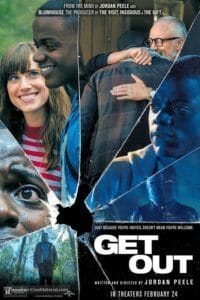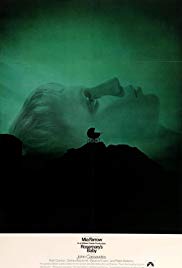Sign up for the
TSL Newsletter
and get $50 off Final Draft 12
By Ken Miyamoto · June 17, 2019

What are Jordan Peele’s best screenwriting tips for writing thrillers?
Welcome to our ongoing Learning from the Masters and Industry Insiders series where we seek out and feature excellent videos, interviews, and discussions of the art, craft, and business of screenwriting and pull the best words of wisdom, writing tips, and screenwriting advice.
We feature Tyler Mowery‘s video Jordan Peele’s Advice on Writing Thrillers for some words of wisdom for screenwriters developing and writing horror movies or suspense thrillers. We’ll take the best tips from the video, share Jordan’s words, and elaborate on his points.
Jordan Peele made the jump from sketch comedy to feature thrillers with his Oscar-winning screenplay (and acclaimed feature directorial debut) Get Out. He developed the new CBS Access iteration of The Twilight Zone and wrote and directed the anticipated horror thriller Us.
Download the script for GET OUT here for free.
Note: Beware of spoilers for Peele’s film Get Out!
“A well-crafted story is one of the few ways we can not tell somebody [they] have to feel [they] have to feel for somebody else, but make somebody feel because they’re experiencing it through entertainment.”
You need to master the ability to make the audience feel empathy for the protagonist. To do that, you need to write your characters in a way where the audience can view the goings-on of the story and conflict through their eyes.
“I want to go back to Stepford Wives and Rosemary’s Baby… for me, those movies were both extremely inspiring because what they did within the thriller genre was this very delicate tightrope walk that honored the protagonist in a way that you rarely see in the genre these days. The characters in those movies, the protagonists, are smart. They’re investigative. And they’re on the trail.”
How many horror thrillers have you seen where the protagonists do stupid things or ignore obvious clues?
Peele’s own Get Out features a character that realizes something is wrong and isn’t afraid to investigate. That type of protagonist offers an easy way for the audience to see the story through their eyes.
Download the script for ROSEMARY’S BABY here for free.
“You have to be very conscious of what the audience knows, what the audience feels, what the audience thinks is going to happen — those things at every point.”
You need to be a fan of the genre you’re writing in. The reason being is that you’ll then know what particular type of audience you’ll be writing for. You’ve been in those theaters with those audiences watching those movies. You have an idea of how that audience reacts and what they respond to most.
Write for that audience.
“Give the audience the benefit of doubt. They will go there. They’re going everywhere. How do I take them back from that point and convince them [otherwise]?”
He was referencing the spoiler that Rose is actually in on her family’s horrific plans. He was completely aware that the audience would pick up on that possibility. Instead of ignoring that, he used the knowledge to his advantage by playing with scenes to make the viewer question their assumptions.
After Rose’s brother attempts to wrestle Chris and show some dominance, the original draft of the script had Chris complaining to Rose about what had just happened. She took the passive stance and was apologetic to her brother’s behavior.
But to throw the audience off from the fact that Rose may be a part of this strange plot against Chris, Peele flipped those reactions. Chris was passive and dismissive of it while Rose was infuriated.
Respect the audience enough to know that they are on to you — and use that knowledge to your advantage.
“We all deal with writer’s block. We all get in our own way. My mantra was ‘follow the fun’. That means, if I’m not having fun, I’m doing it wrong. If you get to a point where you hate what you’re doing, it’s up to you to figure out how to have fun while doing it.”
Wise words to live by as a writer.
Watch the full video below to hear Peele’s elaboration and see visual clips from Get Out that support his points.
For all the latest from The Script Lab, be sure to follow us on Twitter, Facebook, and Instagram.
And become a member of TSL 360 to enjoy the LARGEST screenwriting education content library, featuring masterclasses, deep-dive interviews, and lectures from Academy Award-winning screenwriters, TV show-runners, producers, literary managers, agents, studio executives, and leading educators – all in one place.